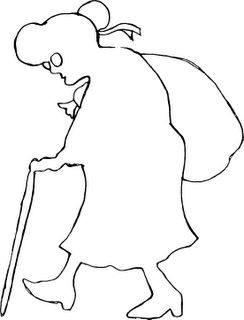Not what you’re thinking, if you’ve had experiences like mine in worship problems. And I’m sure Dash will be interested to learn more about hurdles faced by emergent churches. I stumbled across this offering from a music and sound installation store: “Gand Music and Sound has specialized in helping houses of worship solve their sound problems for over 34 years….” As Gand is well-respected (and I’ve had good experiences with them), I don’t mind providing some free advertising in order to illuminate an entirely new avenue of worship humor. Among the problems they can solve:
Problem… Tripping on the way to the pulpit Solution Clean up your stage. Stop tripping on mic cables on your way to the pulpit (unless you are too ‘emergent’ for a pulpit). Go with wireless mics from Shure or Audio Technica. Get higher quality mics with Shure’s Beta series while you’re at it. Audio muddiness will be gone along with the cable mess.
Tripping in the pulpit is a problem I’ve seen more often (theologically speaking).
Problem… The keyboard sounds cheesey, like an 80’s ballad Solution Kurzweil and Korg make wonderful keyboards for use in church. They can sound like a Steinway, or a lush synth backdrop for a quiet moment in need of enhancement. If you want to sound like an orchestra or a gospel organ, you can.
I admit Kurzweil makes some amazing keyboards, but for church, I’m still in love with a certain E.M. Skinner pipe organ.
Problem… The drums are too loud! Solution A Electronic V-Drums from Roland or Yamaha can give you complete control of volume levels. You get however much drumming your room can handle - no more. Instead of hitting a loud drum or cymbal, the drummer hits a trigger pad connected to a sound module. This goes straight to the PA mixer. You can set the balance from the back of the room, where the people sit who complain every week after the service is over - if they stick around at all. Vocals will be won’t be drowned out by the drums anymore.
Not a problem for me—no drums at all.
Problem… Speakers explode when you say, “Paul” Solution The new Countryman E6 headset microphone is the favorite of pastors today. It is a flesh-toned, ultra-thin mic that picks up the orator evenly all the time. Traditional lavalier mics are subject to gusts of breath causing loud ‘boom’ sounds. Also, as the orator turns their head, the volume varies. The Countryman E6 mic avoids these problems. The microphone element is positioned at the corner of the mouth and is not subject to hard consonant sounds. Request special configuration for any wireless lavalier system or wired beltpack. You can order the mic in four different skin tones.
As the church I’ve been attending uses no mics at all, and it’s possible to hear every word, I thank God I’ve been spared this problem, as well as the following three.
Problem… Our existing PA system probably annoys the Lord Solution The best sounding PA system we sell is from NEXO. It is a little more costly than other similar sized, yet not comparable systems. The consensus from our customers, be they churches, schools, or bands, is that the NEXO system is better than everything else they have had or tried. You can hear vocals clearly. The speakers are no bigger than they really need to be. No squealing feedback. These systems come in a package you can’t mess up.
Problem… Every week, the sound is different Solution Digital mixers are a new innovation that allows you to save all the settings of a mixer. Like a ‘Word’ document on a computer, you can simply reload last weeks settings and pick up where you left off. You can have us configure it especially for your needs and/or instrumentation. We can set up effects for certain channels, compression for the sermon recording, de-esser for the entire mix, limiter to protect the speakers, etc, etc, etc… Problem… Monitor speakers make the stage cluttered and ugly Solution Personal wireless in-ear monitor systems are a new way to keep the floor clear of speakers. The players in the worship band each have ear ‘buds’ connecting to a body pack which receives a custom mix from the mixer. The musicians can then adjust the sound to their liking. These are fast becoming the audio industry standard. Setup of these systems is easier when combined with a digital mixer.
Read the entire list here. I’m relieved to know some worship problems are so easily addressed. My brethren and sisteren in the emerging churches have much reason to praise the Lord.
 You are Proverbs.
You are Proverbs.
 You are Rerun!
You are Rerun!
 You are Saint Francis of Assisi! You don't care
what you look like (or smell like) as long as
you can live simply and help the poor. You
should be receiving your stigmata any day now.
You are Saint Francis of Assisi! You don't care
what you look like (or smell like) as long as
you can live simply and help the poor. You
should be receiving your stigmata any day now.
